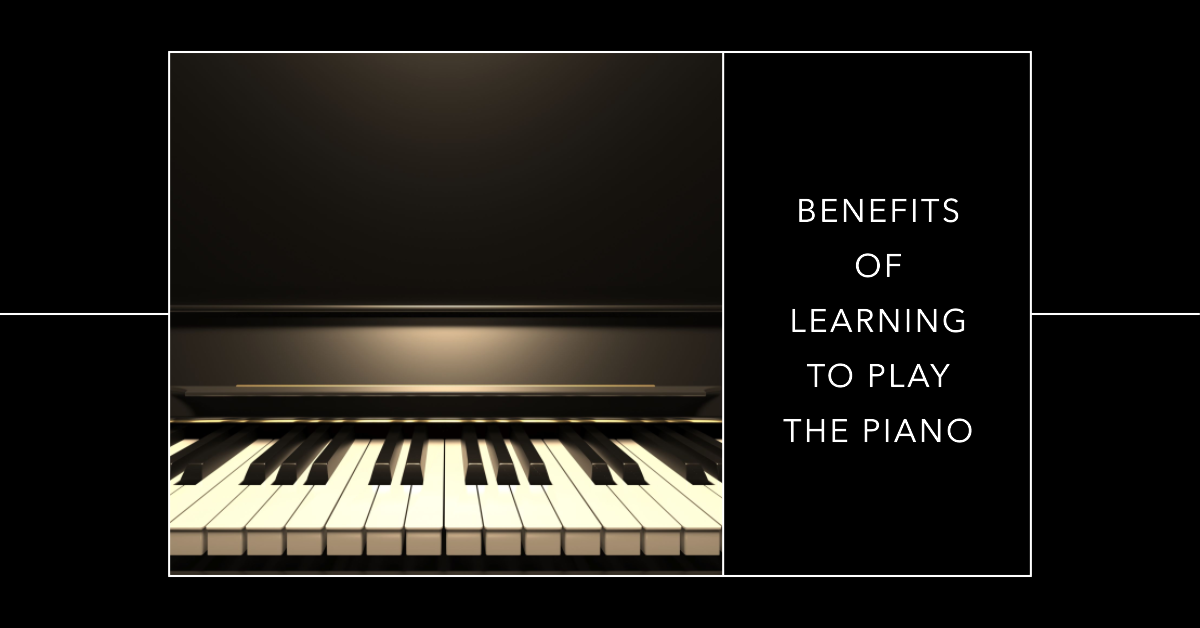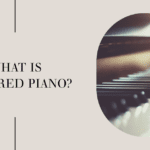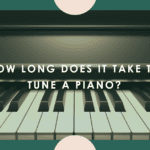Have you ever wanted to learn how to play the piano? Maybe you’ve been curious about the beautiful melodies and harmonies that can be created with just a few fingers.
Or perhaps you’ve heard about the many benefits of playing an instrument, but have yet to take the plunge. Learning to play the piano is an incredible journey that can bring joy, fulfillment, and a sense of accomplishment.
Not only is it a fun hobby, but it also has numerous benefits for your mental health, physical coordination, and cognitive abilities. Whether you’re young or old, there’s never a wrong time to start learning.
The Benefits of Playing the Piano
Playing the piano offers countless benefits for your overall well-being. Not only is it a great way to express yourself creatively, but it can also provide numerous mental and physical health benefits.
For starters, playing music has been shown to boost brain power. In fact, studies have found that musicians have larger brain volumes in areas associated with auditory processing and motor skills.
Learning an instrument can help improve cognitive abilities such as memory retention and information processing. Playing music can also be incredibly therapeutic for relieving stress and anxiety.
There’s something cathartic about sitting down at a piano and letting your emotions flow through your fingertips. Many musicians find that playing music helps them cope with difficult emotions or situations in their personal lives.
In addition to boosting brain power and reducing stress levels, playing the piano can also enhance creativity. When you learn how to play an instrument, you’re essentially learning how to speak another language – one that allows you to communicate through sound rather than words.
This unique form of expression allows you to tap into different parts of your brain that other forms of communication might not reach. Playing an instrument such as the piano can help improve coordination and fine motor skills.
During practice, pianists must coordinate their hands and fingers to play different notes and chords in succession. This requires a great deal of hand-eye coordination and fine motor control – skills that can be improved over time with dedicated practice.
Overall, the benefits of playing the piano are numerous and far-reaching. Not only does it provide emotional fulfilment, but it can also improve cognitive abilities, reduce stress levels, enhance creativity, and improve physical coordination.
So what are you waiting for? Start learning today!
The Brain-Boosting Power of Piano Playing
Playing the piano is not just a fun hobby, it’s also a great way to boost your brainpower. Studies have shown that learning to play an instrument, like the piano, can improve cognitive abilities in both children and adults.

The process of playing notes and reading music requires a lot of mental effort, which can help strengthen neural connections in the brain. This increased connectivity can lead to improvements in memory, attention span, and even language skills.
In fact, a study published in the Journal of Neuroscience found that people who played an instrument for just one hour per week over three years had stronger neural connections between the two hemispheres of their brains than those who did not play an instrument at all. Another study conducted at Northwestern University found that musicians had better auditory processing skills than non-musicians.
This means that they were better able to distinguish sounds and understand speech in noisy environments. So not only does playing the piano make you smarter, but it also helps you hear better!
- Read Also: Learn Piano Without a Piano
The Therapeutic Power of Piano Playing

Playing the piano is a great way to relieve stress and anxiety, which can be especially important in today’s fast-paced and often chaotic world. The act of sitting down at the piano, focusing on nothing but the music and allowing your fingers to glide across the keys can be incredibly calming.
Research has even shown that playing music can lower blood pressure, decrease heart rate, and reduce cortisol levels – all indicators of stress reduction. But it’s not just about the physical benefits – playing the piano also provides a mental escape from daily worries.
When you’re completely absorbed in learning a piece or composing something new, it’s hard to focus on anything else. The sense of accomplishment that comes from mastering a challenging piece can also boost confidence and self-esteem.
I remember when I first started playing as a child; I was dealing with a lot of anxiety at school and was struggling to make friends. But sitting down at my family’s old upright piano offered me an escape where I could express myself without judgement or fear.
It wasn’t long before I found myself lost in melodies for hours at a time. I’m not alone in finding solace through music; many famous musicians have spoken out about how playing their instruments helps them manage anxiety as well.
Singer-songwriter Sara Bareilles has said that playing her piano “resets” her brain when she’s feeling overwhelmed by life’s demands. Even legendary pianist Vladimir Horowitz once said: “The most perfect technique is that which is not noticed at all… it allows the music to flow from within.”
Playing an instrument offers something different than other forms of self-care like meditation or exercise because it engages both your mind and body – plus you get to create something beautiful while doing it! So if you’re looking for ways to manage stress or anxiety, consider sitting down at the piano for some therapeutic time spent making music.
Enhances Creativity
Playing an instrument, such as the piano, can be a fantastic way to enhance creativity. When you play music, you are essentially creating something new every time you sit down at the keys.
This means that your mind is constantly being stimulated and challenged to come up with new ideas and sounds. When we engage in this type of creative activity, our brains release dopamine – a chemical that helps promote feelings of pleasure and satisfaction.
At its core, playing the piano requires both technical skill and artistic expression. You need to be able to use your fingers to play the right notes while also putting your own personal touch on each piece of music.

This combination of technical proficiency and creative flair is what makes playing music such a unique and enriching experience. There are countless examples of famous musicians who have used their creativity on their path to success.
Think about someone like Beethoven or Mozart – these composers were true masters of their craft who used their incredible musical talent to create some of the most beautiful pieces ever written. More recently, artists like Elton John have continued this tradition by writing unforgettable songs that have stood the test of time.
In fact, it’s not just musicians who can benefit from enhanced creativity – many successful entrepreneurs, writers, and artists credit their ability to think outside the box as a key factor in their success. By incorporating creative activities like playing music into your daily routine, you too can reap these same benefits in all areas of your life!
Improves Coordination and Motor Skills
Playing an instrument such as the piano requires a significant amount of coordination and motor skills. It takes both hands to play the instrument, with each hand performing different tasks simultaneously. Mastering playing an instrument takes time, patience, and practice.
However, this process strengthens and improves your brain’s neural connections, improving coordination and fine motor skills. As you begin to learn how to play the piano, you will find yourself practising exercises that help develop your coordination and motor skills.
One such exercise is practising scales with both hands. Scales are a fundamental component of playing the piano.
Practicing scales helps develop finger strength and muscle memory allowing for more precise movements when playing. Another useful exercise is practicing arpeggios.
Similar to playing scales, arpeggios help to strengthen fingers while also improving hand-eye coordination as both hands work in tandem to produce music. Furthermore, practising songs or pieces that require complex movements can also help improve coordination and motor skills significantly.
Playing these challenging pieces requires focus on each individual movement which results in improved dexterity over time. It’s important to note that there are no shortcuts when it comes to developing good motor skills on the piano.
Consistent practice over time is key to building accurate muscle memory in your fingers and hands. Overall, learning an instrument like the piano requires discipline and patience but offers numerous benefits including improved coordination and fine motor skills development which have applications beyond just music making it a valuable skill for anyone wanting to boost their overall cognitive abilities.
Provides a Sense of Achievement
Learning to play the piano can be an incredibly rewarding experience. The feeling of accomplishment when you finally master a song that you’ve been practising for weeks is indescribable. It’s no wonder that so many people choose to pursue playing the piano as a hobby or even professionally.
One way to set achievable goals for progress is by breaking down each piece of music into smaller sections. Start with just a few measures at a time and practice those until you’ve mastered them before moving on to the next section.
This approach not only makes it easier to learn more complex pieces but also fosters a sense of accomplishment as you “check off” each section. Another way to set achievable goals is by keeping track of your progress in a journal or practice log.
Write down what you worked on during each session and note any improvements, no matter how small they may seem at the time. You’ll be surprised at how much progress you can make over time, and looking back at your journal entries can provide additional motivation to keep going.
It’s important to remember that everyone progresses at their own pace, so don’t get discouraged if it takes longer than expected to achieve your goals. The most important thing is that you’re putting in the effort and enjoying the process along the way.
Offers Opportunities for Socialization
Playing the piano can be a solo activity, but it can also provide opportunities for socialization and networking. Joining a local music group or attending concerts allows you to meet other musicians who share similar interests. These connections can lead to new friendships and even career opportunities.
I remember attending my first piano concert and feeling nervous about meeting new people. However, as soon as I arrived, I realized that everyone there shared my love for the piano.
People were friendly, and we bonded over our shared experiences of practising and performing. Since then, I have attended many more concerts and met some amazing people who have become lifelong friends.
Famous musicians also use socialization as a way to improve their skills and make important connections in the industry. For example, Elton John was known to attend music parties where he would showcase his skills and network with other industry professionals.
The Benefits of Playing in Groups
Joining a piano group can provide you with many benefits beyond just playing with others. You will be exposed to different types of music styles, learn new techniques from others, receive feedback on your own playing style, and build confidence in performing in front of others.
Piano groups come in many shapes and sizes ranging from formal classes at institutions like universities to informal groups that meet at someone’s house once a week. Some groups are focused on specific genres like classical or jazz music while others are open to all kinds of musical styles.
The Value of Attending Concerts
Attending concerts is another great way to connect with other musicians while enjoying live performances by professionals in the field. Most cities have regular concerts featuring local pianists or visiting artists from out of town. You may feel intimidated by attending concerts alone, but don’t let that stop you.
Attending a concert solo can be a great way to meet new people who share your love for music. Strike up a conversation with someone sitting near you or join in on the post-concert discussion groups that often take place.
If you’re interested in attending concerts regularly, consider purchasing season tickets or becoming a member of a local music organization. This not only saves you money on admission fees but also provides opportunities to attend exclusive events and network with other members.
Conclusion
Playing the piano is one of the most rewarding and fulfilling hobbies you can take up. Not only does it provide an opportunity to create beautiful music, but it also offers a range of benefits that can improve your everyday life.
By learning to play, you can enhance your cognitive abilities, reduce stress and anxiety, boost creativity, improve coordination and motor skills, achieve a sense of accomplishment and even socialize with other musicians. In terms of improving cognitive ability, playing piano has been shown to enhance neural connections in the brain.
These improvements lead to enhanced memory capacity as well as improved problem-solving skills. As for reducing stress and anxiety, there’s nothing quite like losing oneself in the sound of a beautiful melody to calm the mind and bring about a sense of peace.
Playing piano also helps stimulate creativity by providing an outlet for self-expression that encourages experimentation with different sounds and chords. This creative stimulation has led many famous musicians to succeed in their fields.
For those looking for physical benefits from playing piano, developing coordination and fine motor skills is just one example. By practising scales or finger exercises on a regular basis, you can strengthen your muscles while also developing precise movements that are needed when playing more complex pieces.
Learning piano provides countless opportunities for socialization through attending concerts or joining groups devoted to music-making. The camaraderie developed among fellow musicians is something truly special – not only do they share their love for music but also support each other through difficult practice sessions or performances.
everything we’ve covered so far – learning how to play the piano is more than just taking up a new hobby; it’s an investment in yourself that will pay off in countless ways over time. So if you’re thinking about starting today – go ahead!
You won’t regret it. Who knows where this journey might take you!





